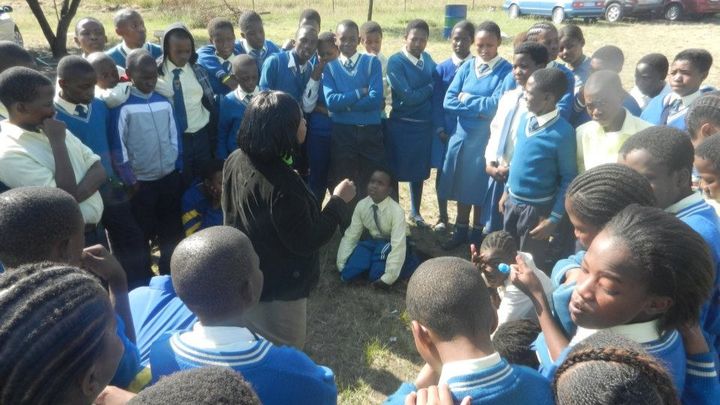By the time I completed my two-year Peace Corps service in Ezakheni Township, South Africa in 2013, my 11 South African colleagues had graduated 457 youth aged 10-16 years through eight 11-session programs focused on life skills, gender equality, and HIV prevention through interactive games and discussion.
While my colleagues put in all the day-to-day work implementing the programs, I was recognized as one of the top 20 Peace Corps Volunteers globally to implement this common Peace Corps program (which is still running today). When the organization affiliated with this program offered to bring one of us Peace Corps Volunteers to Cape Town for a training on the program and none of us were available, I requested that my South African colleague be allowed to join instead. Over ten years later in 2023, this South African colleague - Nombulelo - remains adamant that this program runs through her veins. Unfortunately, after I left my township, the funding dried up and the attention from affiliated organizations quickly faded.
Despite several attempts over the years to re-engage the organizations that initially had been so helpful, my South African colleagues are struggling to continue their critical work. Over the last couple of years, they have created Tholulwazi Sezuliwe Child and Youth Skills Development Organization, whose primary purpose is to support the next generation of South Africans using the power of soccer through these HIV prevention and life skills programs (note: Tholulwazi Sezuliwe loosely translates to: "tears have been wiped out through finding the knowledge", meaning that generational tears are being wiped out as people say goodbye to infectious disease and poverty through obtaining knowledge). To jumpstart their work, my colleagues have envisioned a 4-day HIV Prevention and Life Skills Camp for 70+ youth aged 12-16 years. While the camp is scheduled for December 1-4 of this year, it cannot move forward without your support.
According to the most recent government statistics I could find, uThukela District, where Ezakheni Township is located, is among the top 10 districts in South Africa with the highest population living in poverty; over 60% of the population was below the poverty line as of 2021. Over 1 in every 5 people is living with HIV in uThukela District, and HIV/AIDS is the cause of death for nearly every 1 in 5 people aged 15 to 34 years.
With 1 USD equivalent to approximately 18 South African Rand, your contribution will go a long way toward making this camp a reality. If you can spare $20, $50, $100 or more, please consider making a contribution to help positively impact the lives of 70+ youth.
Here is what your donation* will support:
- $273.34 = two laptops to support the longevity of my colleague's organization (note: as of now, my colleagues need to go to an Internet cafe every time they need to draft a document)
- $136.71 = the entire middle school venue to provide a safe space for the 70+ youth participating (note: an additional $136.71 is being provided in-kind by the venue since my colleagues will be including the school's 7th grade students in the camp)
- $133.94 = full meals for five participants across all four days of the camp
- $101.69 = full roundtrip transportation costs for 30 camp participants
- $54.68 = full stipend for one colleague who will manage the program as a coach (note: there will be 6 coaches and 3 directors managing the camp)
- $26.80 = full meals for one participant across all four days of the camp
*Donations will additionally support catering labor costs, snacks, supplies (e.g., soccer balls, pens, notebooks), transport of food and materials, printing and phone calls, foam mattresses for the camp managers, equipment (e.g., projectors, laptop keyboards), and director stipends.
Most of all, we believe in the impact of this program:
- When I left my township in 2013, a principal at a high school where we had implemented the program for several school classes came to speak at my farewell gathering. He expressed that he had initially been very skeptical of the program, but then started to overhear conversations from the participating students whom he witnessed discussing and thinking critically about topics such as gender norms and sex, taboo conversations within Zulu culture.
- When I was in South Africa a few weeks ago, my colleague said one of our former participants (from our first program back in 2011!) approached her awhile back. He had been particularly chatty during the program sessions as a 4th grader, and my colleague told him he'd become a doctor. He recalled this anecdote when he saw her recently and shared that he had, indeed, become a doctor after all these years.
Thank you for your support, generosity, kindness, and goodwill during this holiday season and so close to World AIDS Day on December 1, the first day of the camp.
My colleagues are incredibly passionate about making a positive impact on their community through these programs, but they can only continue the work we began in 2011 with your support.
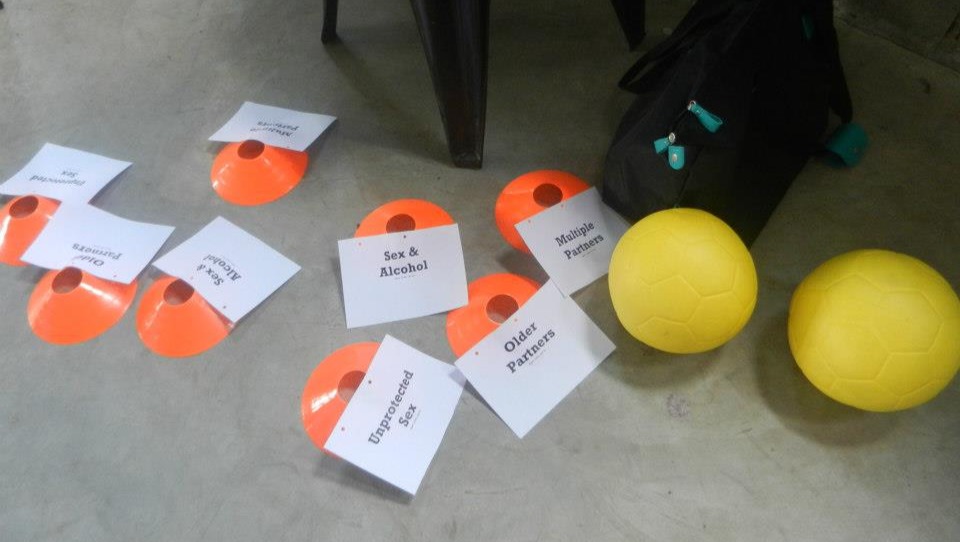
The 11-session program includes interactive activities that are designed to engage while provoke critical thinking. Activities are followed by coach-facilitated discussions.
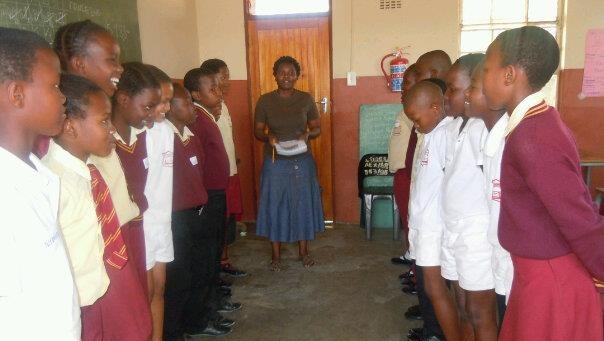
In this "Find the Ball" activity, participants try to make the opposing team guess who is hiding a tennis ball passed behind their backs. The associated discussion focuses on how it can be impossible to tell who has the ball, just like it's not possible to tell who has HIV.
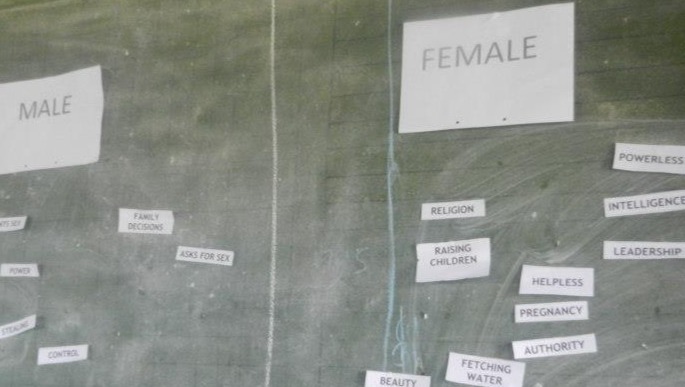
Participants sharing their perspectives on gender norms in the community.
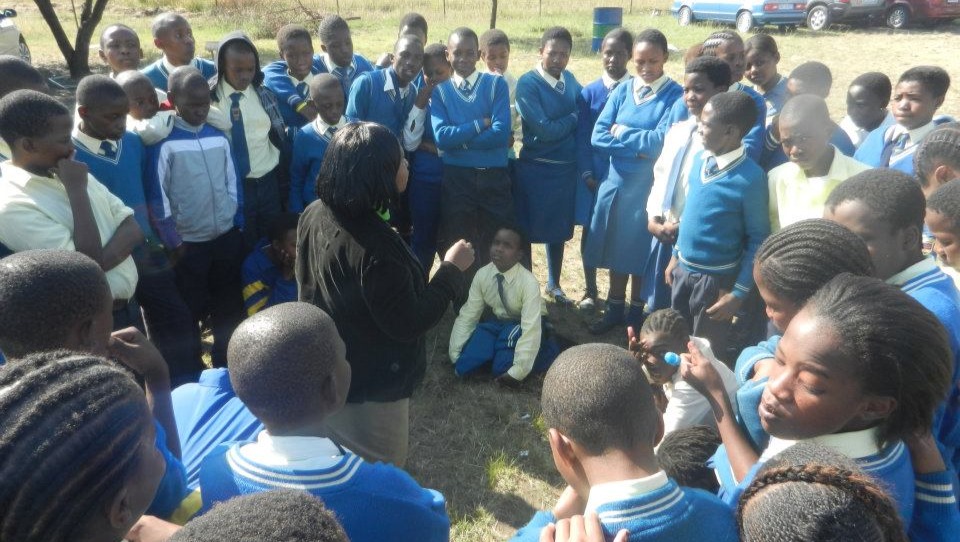
One of our camp directors closes out a session with program participants in 2012 through a personal story.
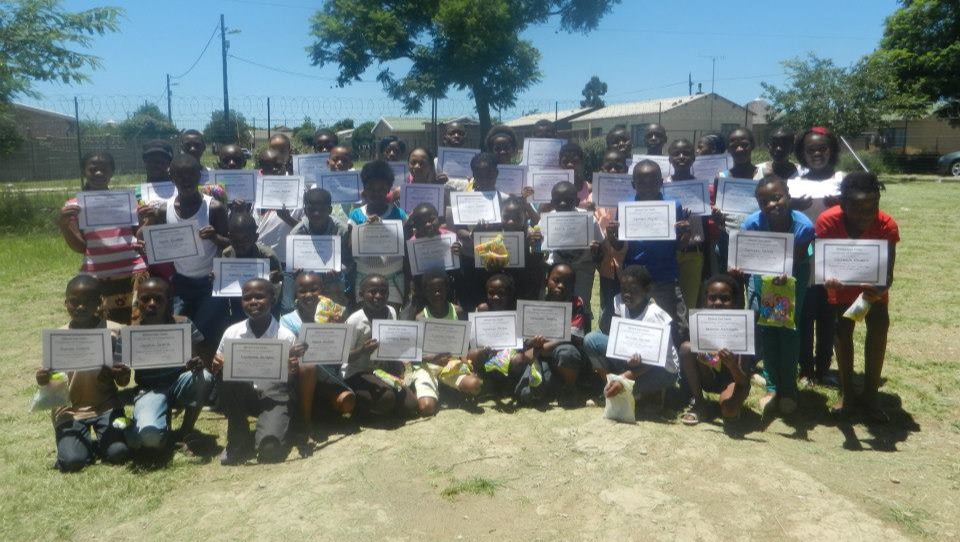
Graduates from the last camp we implemented in 2013.
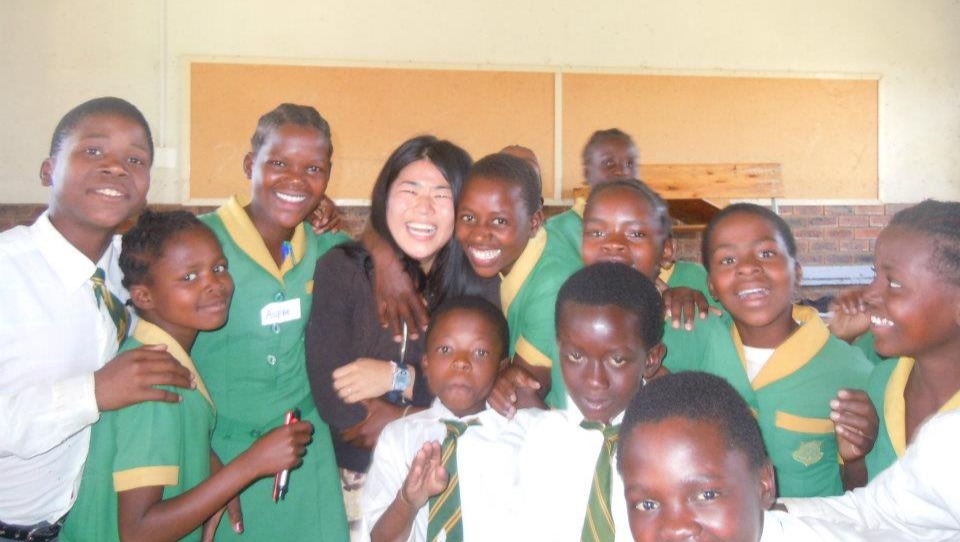
While I never directly taught our program participants since we wanted community role models and coaches who were permanent residents of the community, I loved celebrating with everyone on graduation day!
Organizer
Samantha Croffut
Organizer
Washington D.C., DC
